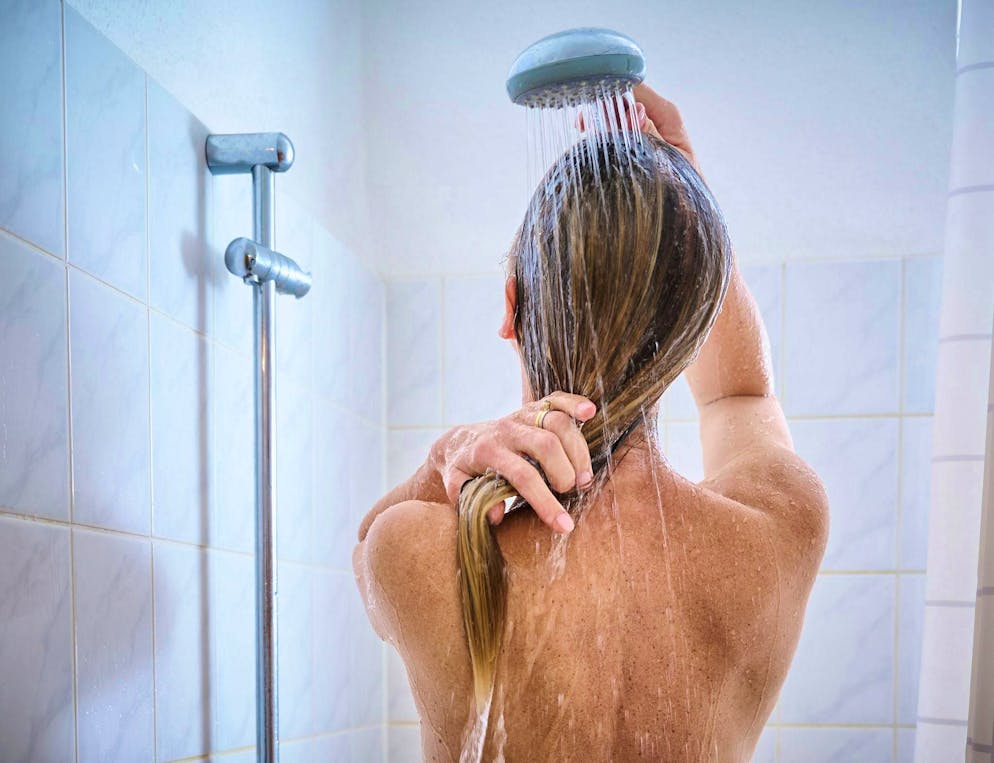Six hair myths to check Does thyme oil really help hair grow?
dpa
24.7.2024 - 00:00

A person has between 80,000 and 120,000 hairs on their head. Care products are piling up on the drugstore shelves. But not everything is necessarily effective. (symbolic image)
Image: dpa

In summer, hair protects the scalp from the sun's rays. However, the hair itself is also susceptible to damage. A well-known remedy: the sun hat. (symbolic image)
Image: dpa

A person has between 80,000 and 120,000 hairs on their head. Care products are piling up on the drugstore shelves. But not everything is necessarily effective. (symbolic image)
Image: dpa

In summer, hair protects the scalp from the sun's rays. However, the hair itself is also susceptible to damage. A well-known remedy: the sun hat. (symbolic image)
Image: dpa
Sun, salt and chlorine - all bad for hair? Thyme oil, on the other hand, is said to help hair growth. Some people think they grow especially after shaving. Which of these claims is far-fetched.
No time? blue News summarizes for you
- Hair is particularly important to most people.
- There are a few myths surrounding its care.
- We do a fact check.
Whether black, brown or red, straight, curly or frizzy - a person has between 80,000 and 120,000 hairs on their head. The number depends on the color - naturally blonde people lead the race. In summer, hair primarily shields the scalp from the sun's rays. However, it is also susceptible to damage itself. Some advise special home remedies. The fact check clears up some myths.
Claim: Washing your hair every day makes it greasy.
Wrong! This mainly depends on your genes. But diet and hormones also have an influence, explains dermatologist Alice Martin. The sebaceous glands responsible for oil production can neither be trained on nor off. Rather, you develop a feeling as to whether your hair is greasy or not: "You get used to it, especially visually."
Nevertheless, you should be aware that the so-called acid mantle of the scalp is washed away with every wash, explains Antonio Weinitschke from the Central Association of the German Hairdressing Trade. This stimulates the production of sebum again and again. According to him, some people can slightly slow down the regreasing process by washing their hair more frequently. "However, this really depends very specifically on how much fat a person produces," says Weinitschke.
Claim: Salt and chlorinated water damage the hair.
Partly true. Hair specialist Andreas Finner sees the main source of danger in the fact that salt and chlorinated water makes hair more brittle and dull, making it more susceptible to friction. They could then "rub against each other more or against brushes or pillows", explains Finner. Salt crystals can also intensify the sun's rays like a burning glass.
But blondes beware! "Depending on how strongly pools are chlorinated, this can cause a green tinge in blonde hair," says master hairdresser Weinitschke. High copper content in chlorinated water can cause such discoloration. This mainly affects bleached hair, but also naturally light blonde hair.
Claim: Hair masks work like sun cream.
Only to a limited extent. "It makes sense to protect the hair from UV radiation because this causes a chemical reaction in the hair keratin, which weakens the structure," explains Finner. It is then more susceptible to mechanical or chemical influences and the risk of split ends and breakage increases. UV radiation from the sun can also cause lightening.
However, hair masks with a sun protection factor do not offer as much prevention as a sun cream with factor 50, says Weinitschke. But what always works, of course, is the well-known protection provided by a sun hat.
Claim: Products made from kale or thyme promote growth.
Hardly researched. There are always videos circulating on Tiktok and co. suggesting kale and parsley smoothies to drink or thyme oil to apply to the hair for more growth.
Expert Martin, who specializes in educational work on social media, among other things, takes a differentiated view of such videos: On the one hand, there are no large-scale studies that confirm a positive effect. Only small-scale tests have shown positive trends in some cases. "You can't say medically that it definitely works, but there are individual reports in which it is classified as positive."
According to Martin, this positive effect may also be due to the fact that those affected take more conscious care of their bodies anyway. "But it's not the case that rosemary oil will stop hair loss if I have genetic or disease-related hair loss," she explains.
Claim: Shaving makes it sprout more.
Wrong! "That's nonsense," says Martin. The hair grows regardless of whether it is shaved or not. "What happens on top has no influence or feedback on genetics." Master hairdresser Weinitschke also considers the claim to be false: "The hair grows in a hair follicle under the skin, and you can't get it with a razor," he explains.
Claim: Better not to comb wet.
Partly true! The open cuticle layer of wet hair can cause it to break more quickly, explains dermatologist Martin. But that's not a bad thing in itself. "It's not a disease. Hair is like dead material," she says. But of course you want to avoid that. According to hairdresser Weinitschke, hair can be stretched to almost half its original length when wet. This means they can also withstand combing well. If it is pulled too tightly, it can of course break at some point.
dpa